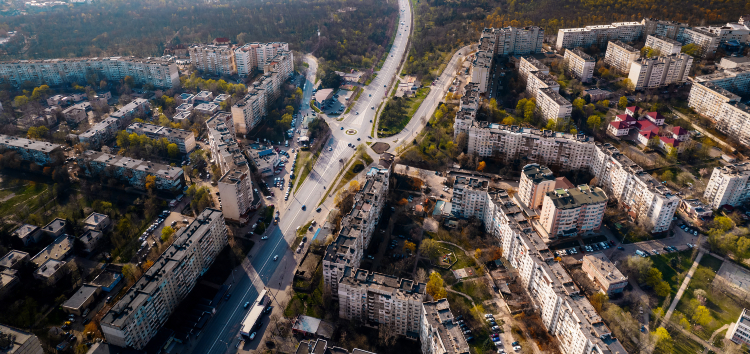The EBRD is lending €150 million to Moldova to finance the rehabilitation of key roads in Moldova and around its capital, Chisinau. The loan will allow the government to upgrade and widen the M2 Chisinau ring road, upgrade the M1 Chisinau to the Leuseni section, and purchase specialised equipment and software for a Road Asset Management System. The two roads are part of the Trans-European Transport Network (TEN-T), which makes Moldova the gateway between the European Union (EU) to its west and countries to its east.
The EBRD’s investment will support the Moldovan government’s efforts to maintain key road links to standards that will enable economic growth, regional integration and trade. Improving the two transport links will allow for a better transit connection between Moldova and its neighbours Ukraine and Romania, in line with the EU Solidarity Lanes initiative.
The investment is part of a large-scale road rehabilitation programme financed by the EBRD, under which more than €340 million has been provided to Moldova so far.
As part of the project, the EBRD is also helping the government develop a national e-mobility strategy that promotes the deployment of electric fleets and vehicle charging infrastructure in the country.
In November 2023 the European Commission recommended that the Council begin accession negotiations with Moldova, which was granted EU candidate status in June 2022. To secure sustained economic growth despite Russia’s war on Ukraine, the country’s road sector must provide improved access to EU markets, as well as maintain access to its traditional markets to the east.
While the war and the sanctions imposed by the EU on Russia have severed these traditional trade links, Moldova’s strategic position is of great importance to ensure transport and continued trade flows are possible from Ukraine to Romania, to the Danube River via Moldova’s Giurgiulesti port, and to other EU countries.
Safe, well-maintained, modern road networks in line with international standards are key.
The EBRD is Moldova’s biggest institutional investor. Last year, the EBRD deployed €350 million of financing in Moldova, supporting energy security, improved infrastructure and connectivity as well as access to finance for the private sector with a special focus on SMEs.
Since the start of Russia’s full-scale invasion of neighbouring Ukraine, the Bank has provided almost €1 billion to Moldova to help mitigate the economic consequences of the war on the economy.
Overall, the Bank has invested more than €2.2 billion in 170 projects in the country, with 40 per cent of its portfolio in sustainable infrastructure.







